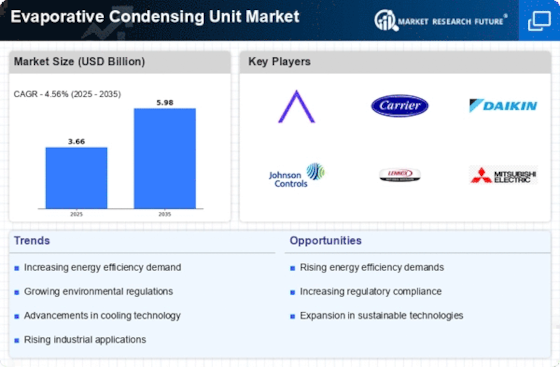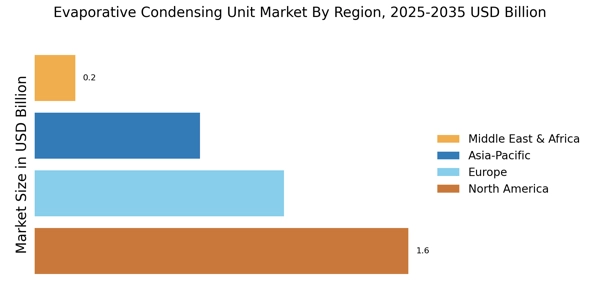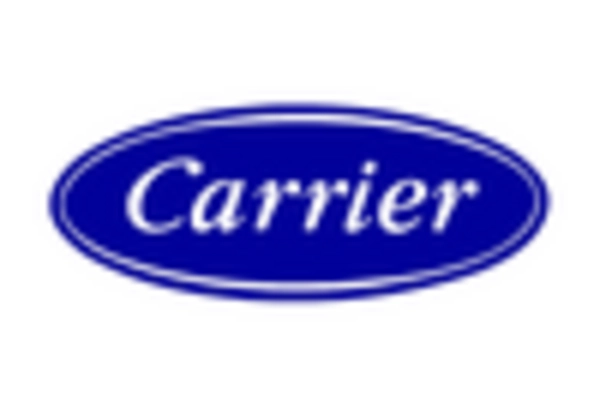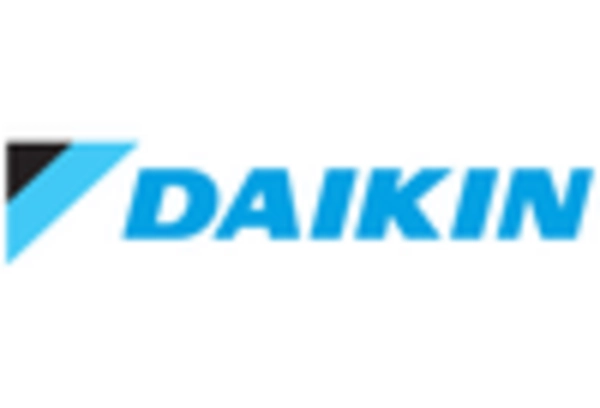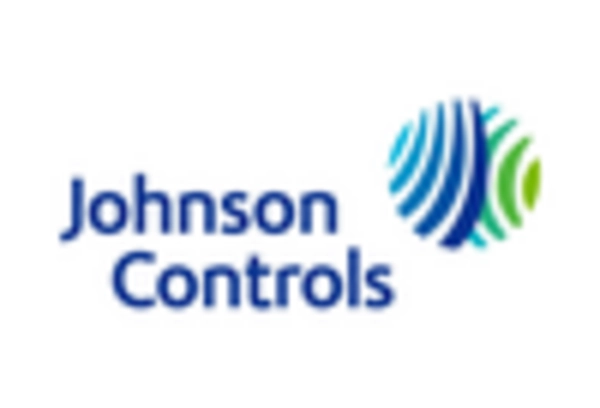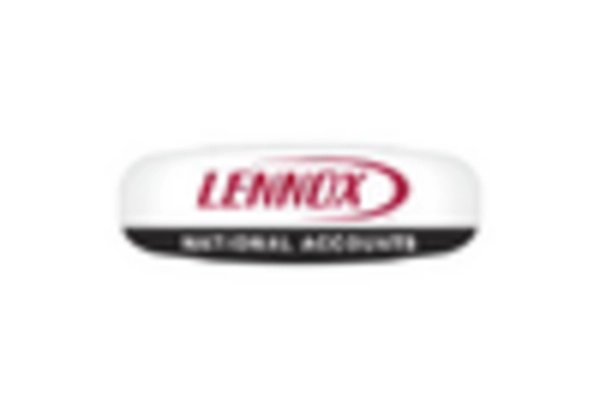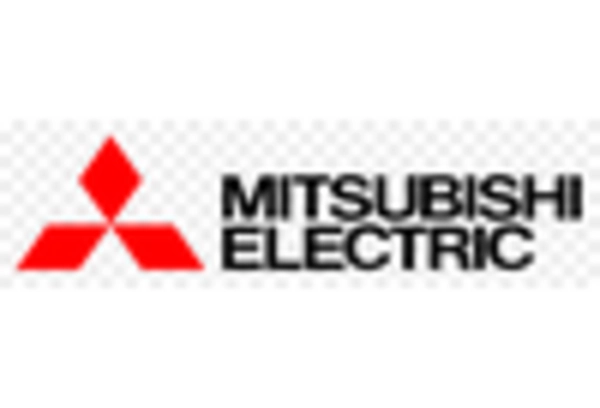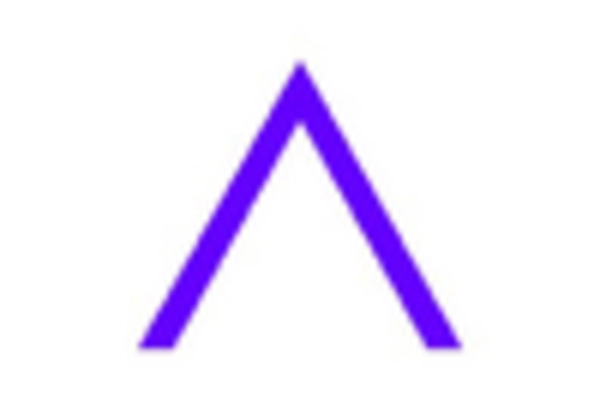Cost-Effectiveness
The Evaporative Condensing Unit Market is characterized by the cost-effectiveness of evaporative cooling solutions. These units typically have lower initial installation costs compared to traditional refrigeration systems, making them an attractive option for businesses looking to optimize their capital expenditures. Moreover, the operational costs associated with evaporative condensing units are generally lower due to their energy-efficient design. This cost advantage is particularly appealing to small and medium-sized enterprises that are sensitive to budget constraints. As the market continues to evolve, the emphasis on cost-effective solutions is likely to drive further adoption of evaporative condensing units, contributing to the overall growth of the industry.
Environmental Regulations
The Evaporative Condensing Unit Market is significantly influenced by stringent environmental regulations aimed at reducing greenhouse gas emissions. Governments worldwide are implementing policies that encourage the adoption of energy-efficient cooling solutions. For instance, regulations that mandate the use of low-GWP refrigerants are pushing industries to transition towards evaporative condensing units, which are inherently more environmentally friendly. The market is projected to grow as companies seek compliance with these regulations while also aiming to enhance their sustainability profiles. In fact, the market is expected to witness a compound annual growth rate (CAGR) of approximately 5% over the next five years, driven by these regulatory pressures.
Technological Innovations
The Evaporative Condensing Unit Market is experiencing a surge in technological innovations that enhance efficiency and performance. Advanced control systems, such as IoT-enabled devices, allow for real-time monitoring and optimization of cooling processes. This not only improves energy efficiency but also reduces operational costs. According to recent data, the integration of smart technologies in evaporative condensing units has led to energy savings of up to 30%. Furthermore, the development of hybrid systems that combine evaporative and traditional cooling methods is gaining traction, appealing to a broader range of industries. As these technologies evolve, they are likely to drive the demand for evaporative condensing units, positioning the industry for substantial growth in the coming years.
Rising Demand for Energy Efficiency
The Evaporative Condensing Unit Market is witnessing a rising demand for energy-efficient solutions across various sectors. As energy costs continue to escalate, businesses are increasingly seeking systems that minimize energy consumption while maintaining optimal performance. Evaporative condensing units are recognized for their ability to provide significant energy savings compared to traditional cooling systems. Recent studies indicate that these units can reduce energy usage by up to 50%, making them an attractive option for industries such as food processing, pharmaceuticals, and data centers. This growing emphasis on energy efficiency is likely to propel the market forward, as organizations prioritize cost-effective and sustainable cooling solutions.
Expansion of Industrial Applications
The Evaporative Condensing Unit Market is benefiting from the expansion of industrial applications across various sectors. Industries such as manufacturing, chemical processing, and HVAC are increasingly adopting evaporative condensing units due to their versatility and efficiency. The ability to operate effectively in high ambient temperatures makes these units particularly appealing for regions with extreme climates. Additionally, the trend towards modular and scalable cooling solutions is driving the adoption of evaporative condensing units in new construction projects. As industries continue to expand and modernize their facilities, the demand for these units is expected to rise, further solidifying their position in the market.


